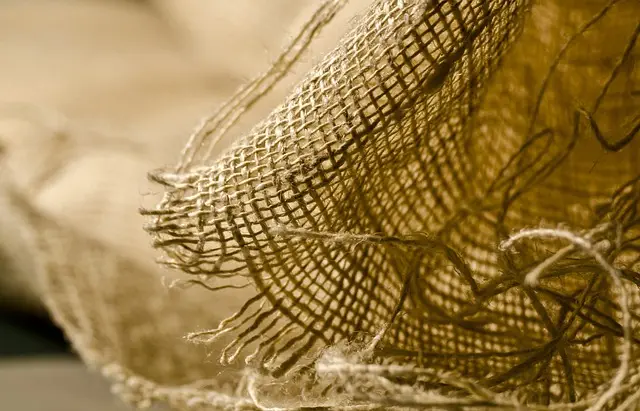Copper is an essential trace mineral that supports the health of connective tissues, which are vital for overall well-being. It significantly contributes to collagen and elastin production, key components of skin, bones, blood vessels, and ligaments, by enhancing their strength and flexibility through enzymatic activity. Copper serves as a cofactor for lysyl oxidase, an enzyme that is crucial for wound healing and the prevention of scar tissue. Kratom, a natural supplement rich in alkaloids like mitragynine and 7-hydroxymitragynine, contains copper, which can positively influence the body's homeostasis when used responsibly. This mineral complements vitamin C to bolster antioxidant defenses in connective tissues and works alongside kratom's alkaloids to support a balanced inflammatory response and protect against oxidative stress. The presence of copper, along with other trace minerals like zinc and manganese, and B-complex vitamins found in kratom, is integral for the maintenance of healthy connective tissues. A balanced intake of these nutrients from kratom, a diverse diet, or supplements, under professional guidance, can enhance energy production and cellular repair, ultimately leading to robust and resilient structural components throughout the body. This holistic approach leverages the benefits of kratom vitamins and minerals for optimal health outcomes.
Copper’s pivotal role in fortifying our connective tissue often takes a backseat to more commonly discussed nutrients. However, this less-heralded element plays a critical part in maintaining the resilience and elasticity of our body’s framework. Delving into the interplay between copper and other vital elements within kratom and its synergistic relationship with essential vitamins can unveil a pathway to robust connective tissue support. This article explores how integrating copper with kratom alkaloids and key vitamins offers a holistic strategy for maximizing the integrity of our body’s structural network, ensuring optimal wellness.
- Copper's Role in Maintaining Connective Tissue Health: The Less-Discussed Nutrient in Kratom and Vitamins for Optimal Wellness
- Understanding the Synergy Between Copper and Other Essential Nutrients for Robust Connective Tissue Support
- Maximizing Connective Tissue Integrity with a Balanced Intake of Copper, Kratom Alkaloids, and Vitamins: A Holistic Approach
Copper's Role in Maintaining Connective Tissue Health: The Less-Discussed Nutrient in Kratom and Vitamins for Optimal Wellness

Copper plays a pivotal role in maintaining the integrity and functionality of connective tissue, a network that is fundamental to overall health. This essential trace mineral is integral to the production of collagen and elastin, the proteins responsible for providing structure and flexibility to various tissues throughout the body, including skin, bones, blood vessels, and ligaments. Copper’s enzymatic actions facilitate cross-linking in collagen, enhancing the tissue’s strength and resilience. Beyond its structural role, copper is also a cofactor for lysyl oxidase, an enzyme critical for wound healing and the prevention of scar tissue formation.
The importance of copper in connective tissue health often takes a backseat to more widely discussed vitamins and minerals. However, its presence in natural supplements like kratom underscores its significance. Kratom, known for its wide array of alkaloids, also contains measurable amounts of copper, which can contribute positively to the body’s homeostasis when consumed responsibly. When combined with a well-rounded vitamin regimen, the role of copper in maintaining robust connective tissues becomes even more apparent. For those seeking optimal wellness, understanding and balancing the intake of kratom vitamins and minerals, including copper, can be instrumental in supporting the body’s natural repair processes and ensuring the vitality of connective tissue health.
Understanding the Synergy Between Copper and Other Essential Nutrients for Robust Connective Tissue Support

Copper plays a pivotal role in the maintenance and function of connective tissues, collaborating with a suite of vitamins and minerals to support the body’s structural integrity. This intricate synergy is particularly evident when considering the interplay between copper and compounds found in kratom, a botanical that has garnered attention for its nutrient profile. Copper facilitates the synthesis of collagen, which is the primary component of connective tissues such as skin, tendons, and bones. It also aids in the cross-linking of collagen fibers, enhancing their strength and resilience. This process is complemented by vitamin C, an indispensable nutrient that is also crucial for the formation and maintenance of collagen.
In addition to its direct impact on collagen production, copper functions as a cofactor for enzymes involved in antioxidant defense systems within connective tissues. These enzymatic activities help protect against oxidative stress, which can otherwise compromise the integrity of connective tissue. Kratom’s alkaloid content, particularly mitragynine and 7-hydroxymitragynine, may indirectly support this defense by promoting balanced levels of inflammation in the body. Together with essential trace minerals like zinc and manganese, which also play roles in enzyme activation and antioxidant processes, copper contributes to a robust network that supports connective tissue health. This network is further bolstered by the B-complex vitamins found in kratom, such as folate, niacin, and thiamine, which are integral to energy production and cellular repair, further enhancing the body’s ability to maintain healthy connective tissues. Understanding this synergy underscores the importance of a well-rounded diet or supplementation that includes kratom, as it can provide a comprehensive array of vitamins and minerals essential for optimal connective tissue support.
Maximizing Connective Tissue Integrity with a Balanced Intake of Copper, Kratom Alkaloids, and Vitamins: A Holistic Approach

Copper is an essential trace mineral that plays a pivotal role in maintaining the strength, flexibility, and resilience of connective tissues throughout the body. It is integral to the production of collagen and elastin, which are the main components providing structure and elasticity to skin, tendons, ligaments, and bones. Ensuring a balanced intake of copper, alongside adequate vitamins and minerals, including those found in kratom alkaloids, can be a key component in maximizing connective tissue integrity. Kratom, a tropical plant whose leaves are dried and ground into tea or capsule form, contains a complex array of alkaloids that have been traditionally used for their potential health benefits. Some of these alkaloids, such as mitragynine and 7-hydroxymitragynine, may interact synergistically with copper to support healthy connective tissues. For instance, the anti-inflammatory properties attributed to certain kratom alkaloids can complement copper’s role in reducing oxidative stress that might otherwise compromise collagen production and tissue repair.
Incorporating a holistic approach that includes a balanced diet rich in copper, along with the carefully considered use of kratom alkaloids, can be beneficial for connective tissue health. It is important to recognize that maintaining optimal levels of these nutrients is essential for the body’s natural ability to repair and maintain its structural tissues. Additionally, ensuring proper vitamin cofactors—such as vitamins C and B6, which are crucial in copper metabolism—can further enhance the effectiveness of copper in supporting connective tissue integrity. A balanced intake of these nutrients can be achieved through a well-rounded diet or, when necessary, with the guidance of a healthcare professional, through supplementation to address specific health concerns or deficiencies. This comprehensive approach not only supports the body’s infrastructure but also contributes to overall well-being and vitality.
Copper’s pivotal role in fortifying connective tissue health is a critical aspect often overshadowed by more prominent nutrients. This article has illuminated how the integration of copper, alongside kratom alkaloids and key vitamins, forms a synergistic trifecta that can significantly enhance connective tissue integrity. By adopting a holistic approach that considers the balance between these components, individuals may support their body’s framework effectively. The intersection of kratom vitamins and minerals offers a promising avenue for those seeking to maintain or improve their connective tissue health, emphasizing the importance of comprehensive nutritional strategies.






